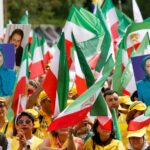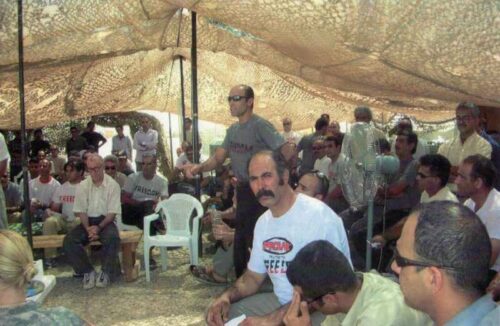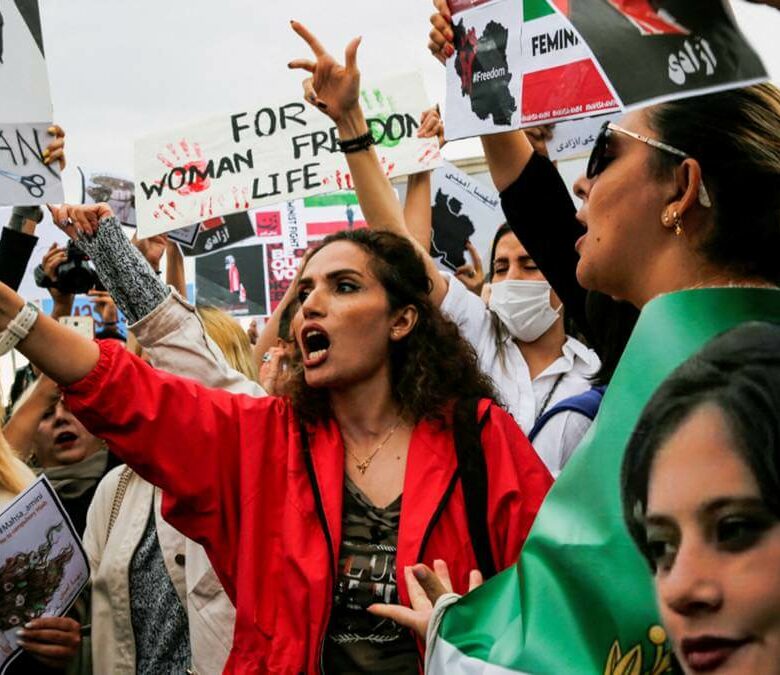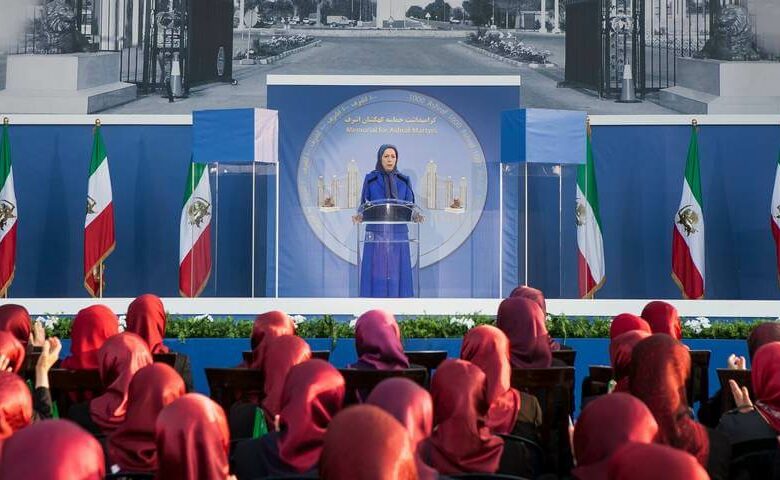
De l’Idéalisme à la Captivité – Le récit de Javad Firozmand au sein de l’OMPI
November 26, 2005
The Long Shadow of Freedom
May 8, 2014In a development that has raised concerns about the fate of former members of the Mujahedin-e Khalq Organization (MEK), the U.S.-led military coalition in Iraq (January 2008)has confirmed that several individuals have defected from the group and left their base in the country. The defections come amid increasing uncertainty about the future of these former MEK members, who have long been displaced in Iraq and are now facing challenges in seeking asylum in the West.
The U.S.-led military coalition in Iraq has confirmed that several members of the Mujahedin-e Khalq Organization (MEK) have defected from the group and left their base in Iraq.
This confirmation follows reports that, in recent weeks, dozens of former Mujahedin-e Khalq (MEK) members attempting to leave Iraq and seek asylum in other countries have failed. Many of them are now stranded in Iraq and living under harsh conditions.
Since the U.S. and its allies occupied Iraq four years ago, a number of MEK members have gradually defected from the organization and left Camp Ashraf, their base in Iraq.
The U.S. military, which has been guarding Camp Ashraf during this period, has relocated defectors to a camp near the base and provided them with protection.
According to the U.S. military press office in Iraq, 380 defectors from the MEK have voluntarily returned to Iran over the past four years.
However, defectors who refused to return to Iran, despite efforts by the U.S., have not yet been able to secure asylum in any other country.

Former Members of the Mujahedin-e Khalq, TIPF , Camp Ashraf, Iraq
Reports indicate that, in the past few weeks, dozens of defectors decided to leave the camp under U.S. protection and attempted to exit Iraq through various routes. However, most of these attempts were unsuccessful. Many returned to the U.S.-guarded camp, some were arrested after crossing the Turkish border and sent back to Iraq, while a few managed to settle secretly in Turkey and Greece.
The Association for the Support of Immigrants and Iranians in France (Arya) is working to assist MEK defectors in their attempts to leave Iraq and resettle in other countries.
According to statistics from this association, 208 defectors were residing in the U.S. military camp a month ago. The U.S. military press office now reports the current number of residents in the camp to be approximately 110.
Javad Firozmand, a spokesperson for Arya and himself a former MEK member, stated that the number of defectors had recently decreased to around 50, suggesting that many who had left the camp had returned.
Firozmand told the BBC that 70 defectors, after leaving the U.S.-protected camp, attempted to reach Turkey with the help of human traffickers. However, Turkish border police arrested them, and after a month in prison and detention in a forced camp, they were handed over to the Iraqi police. One of them was injured by Turkish border police gunfire while crossing the border and is currently hospitalized in Erbil, the capital of Iraqi Kurdistan.
Firozmand added that the Kurdish Regional Government in Iraq temporarily housed those handed over by Turkish police in a camp in Erbil. However, some of them again tried to cross the Turkish border, and ten were arrested by Turkish police and returned to Iraq, where they are now in prison in Erbil. The rest, who managed to cross the border, made their way to Greece, with ten reaching the country with the help of traffickers, while 15 others are hiding in cities such as Istanbul, Ankara, and Van in Turkey.
Firozmand further explained that these defectors in Turkey cannot approach human rights organizations or Turkish authorities because, if identified, they will be arrested and deported back to Iraq. The ten who made it to Greece are currently living there illegally and secretly.
He also mentioned that about 15 defectors have taken the route to Jordan, and the fate of eight others remains unknown.
BBC’s efforts to contact the United Nations High Commissioner for Refugees (UNHCR) to find out more about the fate of the defectors have not yet yielded results and are ongoing.
Arya has called on human rights organizations and Iranian groups to work towards providing legal residency for these individuals in European countries or other free nations.
Over the past four years, some MEK defectors have returned to Iran, with the U.S. military press office in Iraq reporting that 380 individuals have done so.
Javad Firozmand, the Arya spokesperson, said that these individuals are living freely in various cities in Iran, working and leading normal social lives. He himself is in contact with some of them.
According to Firozmand, around 200 defectors remain within Camp Ashraf, still under MEK control. They have refused to relocate to the camp established by the U.S. military for defectors and are being kept separately within Camp Ashraf.
Firozmand said these individuals are also seeking asylum in Western countries.
Camp Ashraf, established in 1986 with the transfer of MEK leadership from France to Iraq, was initially used by the group to engage in armed struggle against Iran, with military support from Saddam Hussein’s regime during the Iran-Iraq War.
Located in the Khales district in Diyala province, eastern Iraq, the U.S.-led coalition now reports around 3,360 people remain at the camp.
While the U.S. considers the MEK a terrorist group, it has provided them with “protected person” status under international law and the Geneva Conventions.
The Iranian government demands the closure of Camp Ashraf and the expulsion of MEK members from Iraq, accusing the U.S. of using them as a tool against Iran in the future.
Saturday, January 26, 2008
Link: https://www.bbc.com/persian/iran/story/2008
By Mr. Mehrdad Farahmand
BBC Persian





